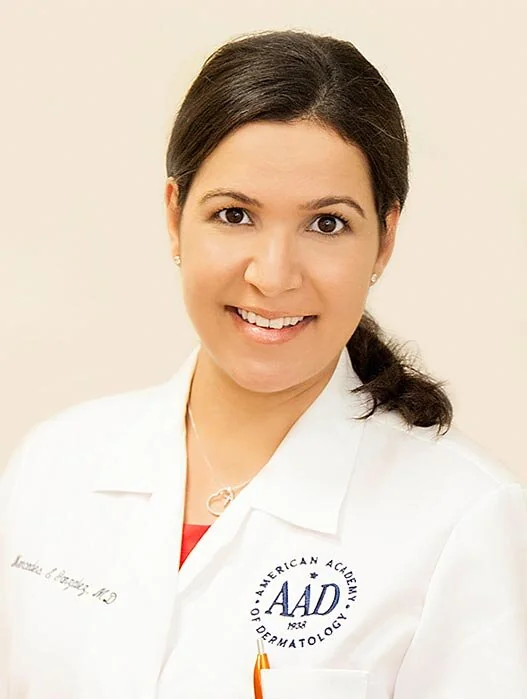
Does your child have uncontrolled alopecia?
Does your child have uncontrolled alopecia?
Is your child experiencing hair loss or patchy areas on their scalp?
We currently have two ongoing clinical trials for children ages 6–11 and one trial for adolescents ages 12–17 with moderate to severe Alopecia Areata.

Is your child experiencing hair loss or showing signs of patches on the scalp?
There is a new clinical trial for adolescents aged 12 to 17 with moderate to severe Alopecia Areata.
Alopecia Areata Studies
About The Trial
Meet Our Medical Director
Dr. Mercedes E. Gonzalez is a board-certified pediatric dermatologist. After graduating from Emory University, she earned her degree at Rutgers–New Jersey Medical School in 2004. Always drawn to working with children, she accepted the prestigious pediatrics program at the Morgan Stanley Children’s Hospital of New York–Columbia University where she solidified her interest in treating skin disorders. She then completed a dermatology residency followed by a clinical fellowship in pediatric dermatology at the top-ranked New York University (NYU) Department of Dermatology.
Her gentle, child-friendly bedside manner, combined with her broad knowledge of childhood skin diseases and their treatments, make her the preferred pediatric dermatologist in Miami. In addition to practicing medicine, Dr. Gonzalez currently serves as a clinical assistant professor at The FIU Herbert Wertheim School of Medicine and The Phillip Frost Department of Dermatology at Miller School of Medicine.
Dr. Gonzalez serves as the principal investigator on numerous clinical trials and has a special interest in severe skin diseases in children. She lectures regularly at dermatology conferences and to medical students and residents and is the co-editor of 3 dermatology textbooks, including the recently published 2nd edition of Goodheart’s Same Site Differential Diagnosis, and has published over 50 journal articles.

Join Our Free Webinar
New Treatments for Alopecia in Children
📅Date to Be Determined
This upcoming trial involves a JAK (Janus kinase) inhibitor, offering a consistent treatment approach without a placebo group.
“Our wounds are often the openings into the best and most beautiful part of us.”
This new avenue brings hope and promise to a younger demographic.

This upcoming trial involves a JAK (Janus kinase) inhibitor, offering a continuous treatment approach without a placebo group.
This upcoming trial involves a JAK (Janus kinase) inhibitor, offering a continuous treatment approach without a placebo group.
This new avenue brings hope and promise to a younger demographic.
This new avenue brings hope and promise to a younger demographic.



